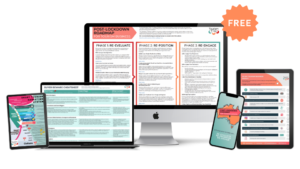Promoting and marketing your tourism business in 2018 has a number of extra challenges and requirements compared to 10 years ago. In 2008, websites didn’t require to be mobile friendly, local search didn’t existed, social media was still in its infancy and TripAdvisor was one of the only reputation management platform had to worry about.
Fast forward 10 years, the small tourism operator needs to have acquired another set of strategic marketing skills to ensure their business remains competitive and almost gone through a Google Analytics masterclass to understand if marketing campaigns are providing a positive Return on Investment.
In this short article I will go through what I feel the real underpinning issues are with the small and medium business owners in the tourism industry when it comes to taking a digital leap with their business.
I often get asked by tourism businesses questions such as:
- Can I hire you as a consultant 2h a week
- I need to get more sales, what do I need to do.
- Can you fix my website?
Unfortunately, these questions raise a huge red flag (and get my creative juices thinking too!). It immediately tells me that business owner in question hasn’t yet made the commitment to fully embrace digital throughout their business and have been merely relying on their web developer on an ad-hoc basis.
Whilst it is in my nature to help and share ideas with those businesses, I know that a mere 2h of consulting per week will not even make a dent in their revenue. The first step that this business has to take is make the commitment to themselves that they need to adapt to change and understand what it takes to be a small tourism business in 2018.
I am not just talking about having a mobile friendly site here, nor am I talking about developing a whizz-bang application on the blockchain. I am referring to the business’s willingness to learn and be 100% responsible for their business success and committed to leading that change within their organisation. The times have changed and business owners need to adapt. And the good thing is that – thanks to Good’ol Dr Google – this can be done without spending thousands of dollars and by just dedicating time and enthusiasm.
Here is how I recommend they should tackle the problem: tourism business executives need to first create a list of priorities with regards to upskilling themselves.
The business practices that Tourism operators should be familiar and confident with in 2018 are:
- What opportunities do cloud technology provide my business
- Business automation for small businesses – how much time could I be saving
- Social media for tourism – who’s doing it right, who can I ‘follow’ to learn
- Cloud based accounting – I’ve heard about businesses going from paying a bookkeeper for 20h a week and then moving to the likes of Xero or Quickbooks and only having to pay the bookeeper for 2h a week. This ONLY happened because the business owner had decided to educate themselves enough to understand how accounting and bookkeeping had become so much more business-friendly thanks to cloud technology.
The above 3 tips will immediately start populating your list of capabilities that you need to build to be bullet proof, proactive tourism business in 2018.




